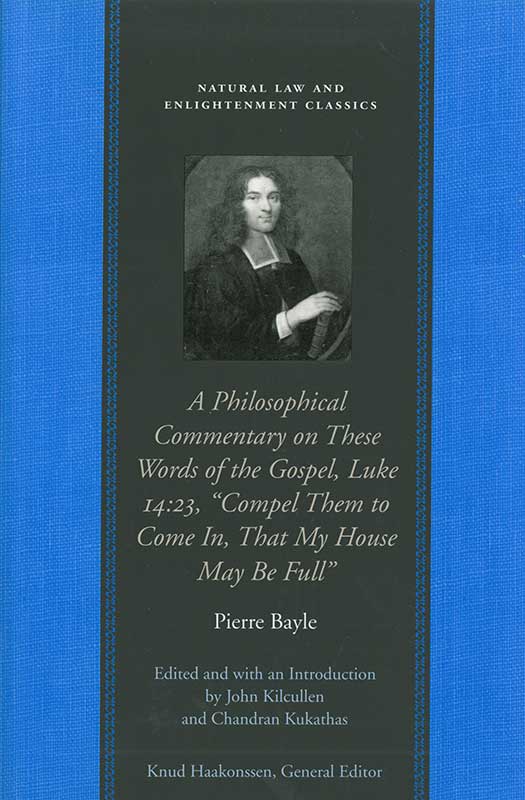
A Philosophical Commentary on These Words of the Gospel
- Pierre Bayle (author)
- John Kilcullen (editor)
In this defence of religious toleration, Bayle discusses the words attributed to Jesus Christ in Luke 14:23, “And the Lord said unto the servant, Go out into the highways and hedges, and compel them to come in, that my house may be full.” Bayle contends that the word compel cannot mean “force.” From this perspective, he constructs his doctrine of toleration based on the singular importance of conscience.
Key Quotes
Religion & Toleration
Thus the whole Body of Divines, of what Party soever, after having cry’d up Revelation, the Meritoriousness of Faith, and Profoundness of Mysterys, till they are quite out of breath, come to pay their homage at last at the Footstool of the Throne of Reason, and acknowledg, tho they won’t speak out…